Crypto Trading on the TRON Network is Exploding, Here’s How To Start With $TRX
Introducing a write up on the infamous Tron Network, a blockchain recently making waves in the crypto scene. Cryptocurrency trading has seen tremendous growth and evolution over the past few years, transforming from a niche activity into a mainstream financial practice. This rapid development has opened up a wealth of opportunities for both beginners looking to explore the digital asset space and experienced traders aiming to expand their portfolios.
As the market has matured, various blockchain networks have emerged, each offering unique features and benefits. Among these, the TRON Network has stood out as one of the most promising and innovative platforms, particularly within the rapidly growing DeFi (Decentralized Finance) sector. TRON’s ability to support fast, efficient, and low-cost transactions has made it an attractive choice for those interested in decentralized trading, offering a compelling alternative to more established networks like Ethereum.
In this blog, we’ll delve into the essentials of crypto trading on the TRON Network, providing a comprehensive overview for those looking to get started. We will discuss the key advantages that TRON offers for DeFi trading, such as its scalability, low transaction fees, and robust ecosystem. Additionally, we’ll explore the different platforms available for trading on TRON, including decentralized exchanges (DEXs) and trading bots, which offer users a variety of tools to optimize their trading strategies.
Finally, we’ll emphasize the importance of self-custody in the decentralized finance space, explaining why retaining control over your digital assets is crucial in a landscape where security and autonomy are paramount. Whether you’re new to crypto trading or looking to diversify your approach, this guide will provide valuable insights into making the most of the TRON Network.
Trading Bots on TRON
- SUNTOOLS TRON TRADING: TRON
- SUNBOT: Designed specifically for the TRON by SUNDOG , SUNBOT allows users to automate their trading strategies on TRON-based DEXs. SUNBOT is user-friendly and offers a range of features for both beginners and experienced traders.
- MAESTRO BOT : Full Features Trade Bot for Sol Eth Base Blast Bsc Arb Metis Ton TRON
- Tron Sniper Bot: Another popular option, Tron Sniper Bot integrates with TRON’s JustSwap, enabling users to automate their trades on the platform with ease and automate trade with advanced features.
- DOGEE TRON BOT : TRON
- NFD TRON TRADE BOT : TRON
- Prodigy Bot : Tron +
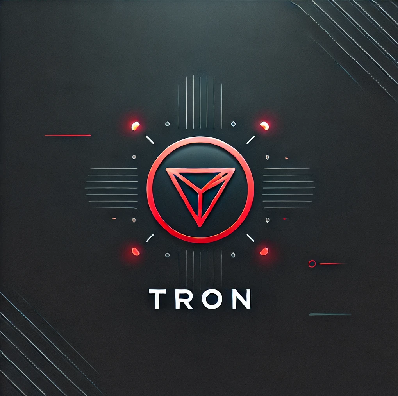
Introduction to the TRON Network
Launched in 2018 by entrepreneur Justin Sun, the TRON Network is a blockchain-based decentralized platform that aims to create a global digital content entertainment system with distributed storage technology. TRON enables easy and cost-effective digital content sharing by eliminating intermediaries, thus providing users with complete ownership of their data and the ability to monetize it directly.
The TRON Network is known for its high scalability, low transaction fees, and fast processing speeds, making it an attractive platform for developers and users alike. TRON’s native cryptocurrency, TRX, plays a crucial role in powering the network, facilitating transactions, and enabling smart contracts. TRON’s compatibility with Ethereum through its support of the Ethereum Virtual Machine (EVM) also allows developers to port their Ethereum-based applications to the TRON network easily, further enhancing its appeal.
Advantages of Using the TRON Network for DeFi Trading
The TRON Network offers several advantages for DeFi trading, making it a popular choice among traders and developers. Here are some key benefits:
- High Scalability: TRON’s Delegated Proof of Stake (DPoS) consensus mechanism allows it to process thousands of transactions per second, making it one of the fastest blockchain networks available. This high scalability is particularly beneficial for DeFi platforms that require quick and efficient processing of transactions.
- Low Transaction Fees: One of the most significant advantages of using the TRON Network is its extremely low transaction fees. Unlike other blockchain networks where gas fees can be prohibitively high, TRON’s fees are minimal, making it an ideal platform for traders who execute multiple transactions.
- Strong Developer Ecosystem: TRON has a robust developer community and a growing ecosystem of decentralized applications (dApps) and DeFi platforms. This thriving ecosystem provides traders with access to a wide range of tools, services, and opportunities within the TRON network.
- Cross-Chain Compatibility: TRON’s compatibility with other blockchains, particularly Ethereum, allows for seamless integration and interoperability between different blockchain networks. This cross-chain functionality enables traders to leverage assets and services across multiple platforms, enhancing their trading strategies and opportunities.
Understanding DeFi Trading Platforms: DEXs and Trading Bots
When it comes to DeFi trading on the TRON Network, traders have access to two primary types of platforms: decentralized exchanges (DEXs) and trading bots. Understanding how these platforms work is essential for anyone looking to start trading on TRON.
Decentralized Exchanges (DEXs)
A decentralized exchange (DEX) is a peer-to-peer marketplace where transactions occur directly between users without the need for an intermediary. Unlike centralized exchanges (CEXs), where a third party holds and manages users’ funds, DEXs operate on smart contracts, allowing for trustless and automated trading.
Advantages of DEXs:
- Security and Privacy: Since DEXs do not require users to deposit their funds with a third party, traders maintain full control over their assets, reducing the risk of hacks and theft. Additionally, DEXs typically do not require KYC (Know Your Customer) verification, preserving users’ privacy.
- Transparency: Transactions on a DEX are recorded on the blockchain, ensuring full transparency and immutability. Users can verify all transactions and trade activity directly on the blockchain.
- No Single Point of Failure: Because DEXs are decentralized, there is no single point of failure that can be targeted by attackers. This makes DEXs more resilient to censorship and downtime compared to centralized exchanges.
Popular DEXs on TRON:
- JustSwap: TRON’s leading decentralized exchange, JustSwap, allows users to trade TRC-20 tokens quickly and efficiently. JustSwap operates on the TRON blockchain, offering low fees and fast transaction times.
- SunSwap: Another popular DEX on TRON, SunSwap, offers similar functionality to JustSwap with additional features and token pairs.
Trading Bots
Trading bots are automated software programs that execute trades on behalf of the user based on predefined algorithms and strategies. These bots can be integrated with DEXs and centralized exchanges, allowing users to automate their trading activities and take advantage of market opportunities 24/7.
Advantages of Trading Bots:
- Automation: Trading bots can execute trades automatically based on market conditions and user-defined parameters, removing the need for manual intervention. This is particularly useful for traders who want to take advantage of price fluctuations or execute high-frequency trades.
- Consistency: Bots operate without emotions, ensuring that trades are executed consistently according to the user’s strategy. This eliminates the risk of emotional decision-making, which can often lead to poor trading outcomes.
- Speed: Bots can react to market changes much faster than a human trader, executing trades in milliseconds and capturing opportunities that may be missed otherwise.
Popular Trading Bots on TRON:
- SUNTOOLS TRON TRADING: TRON
- SUNBOT: Designed specifically for the TRON by SUNDOG , SUNBOT allows users to automate their trading strategies on TRON-based DEXs. SUNBOT is user-friendly and offers a range of features for both beginners and experienced traders.
- MAESTRO BOT : Full Features Trade Bot for Sol Eth Base Blast Bsc Arb Metis Ton TRON
- Tron Sniper Bot: Another popular option, Tron Sniper Bot integrates with TRON’s JustSwap, enabling users to automate their trades on the platform with ease and automate trade with advanced features.
DEX vs. CEX: Understanding the Differences
When starting with crypto trading, it’s essential to understand the key differences between decentralized exchanges (DEXs) and centralized exchanges (CEXs).
Centralized Exchanges (CEXs):
- Third-Party Custody: CEXs require users to deposit their funds into the exchange’s wallet, where the exchange has control over the assets. This introduces a level of trust in the exchange’s security and integrity.
- Liquidity: CEXs generally offer higher liquidity due to their large user base and centralized order books. This can result in better trade execution and lower slippage.
- Ease of Use: CEXs typically offer a more user-friendly experience, with features such as advanced trading tools, customer support, and fiat on-ramps for purchasing cryptocurrencies.
NON KYC CEX to Buy or Leverage $TRX
Decentralized Exchanges (DEXs):
- Self-Custody: On a DEX, users retain full control of their funds, with transactions being executed directly from their wallets. This enhances security but requires users to take responsibility for managing their private keys.
- Privacy: DEXs usually do not require KYC verification, allowing users to trade anonymously.
- Trustless Trading: DEXs operate on smart contracts, removing the need for intermediaries and enabling direct peer-to-peer trading.
The Importance of Self-Custody in DeFi
Self-custody refers to the practice of managing and securing your own private keys, rather than entrusting them to a third party, such as a centralized exchange. In the context of DeFi, self-custody is of paramount importance for several reasons:
- Security: By retaining control of your private keys, you reduce the risk of losing your funds to hacks, exchange failures, or fraudulent activities. As the saying goes, “Not your keys, not your coins.”
- Ownership: Self-custody ensures that you have full ownership and control over your digital assets. You are not dependent on a third party to access, transfer, or trade your funds.
- Censorship Resistance: With self-custody, you are less vulnerable to censorship or restrictions imposed by centralized entities. You have the freedom to transact with your assets as you see fit, without relying on intermediaries.
- Access to DeFi: Many DeFi platforms and protocols require users to have self-custody of their assets. This allows you to fully participate in the DeFi ecosystem, including staking, lending, liquidity provision, and more.
What is $TRX?
$TRX, the native cryptocurrency of the TRON blockchain, is a digital asset that plays a pivotal role in powering the TRON ecosystem. Launched in 2017 by Justin Sun, $TRX is used for a variety of functions within the network, including paying transaction fees, executing smart contracts, participating in network governance, and facilitating trading across various decentralized applications (dApps) built on the TRON platform.
Key Features of $TRX:
- Transaction Efficiency: $TRX is known for enabling fast and cost-effective transactions on the TRON network. With TRON’s high throughput capability, transactions can be processed in seconds with minimal fees, making $TRX an efficient choice for everyday blockchain activities.
- Smart Contracts and dApps: Developers use $TRX to deploy and interact with smart contracts on the TRON blockchain. These smart contracts are essential for running decentralized applications (dApps) that provide services ranging from finance to entertainment within the TRON ecosystem.
- Staking and Governance: $TRX holders can participate in the network’s governance by staking their tokens. Staked $TRX allows users to vote for Super Representatives, who validate transactions and secure the network. Staking also rewards participants with additional $TRX, incentivizing network security and participation.
- Interoperability: TRON is compatible with the Ethereum Virtual Machine (EVM), allowing $TRX to be easily integrated with Ethereum-based applications. This cross-chain compatibility enhances $TRX’s utility and expands its use cases across different blockchain ecosystems.
Market Cap Comparison
As of recent data, $TRX ranks among the top cryptocurrencies by market capitalization, though it generally trails behind the largest blockchains like Bitcoin ($BTC), Ethereum ($ETH), and Binance Coin ($BNB).
Comparing Market Caps:
- Bitcoin ($BTC): Bitcoin, the original cryptocurrency, holds the largest market capitalization in the crypto space, often exceeding $500 billion. As the most established and widely recognized cryptocurrency, Bitcoin serves primarily as a store of value and medium of exchange, though it lacks the smart contract capabilities that networks like TRON offer.
- Ethereum ($ETH): Ethereum is the second-largest cryptocurrency by market cap, typically ranging between $200 billion and $300 billion. Ethereum is the leading platform for smart contracts and decentralized applications, and its large ecosystem has made it a cornerstone of the DeFi and NFT (non-fungible token) markets. However, Ethereum’s higher transaction fees and slower processing times have opened the door for competitors like TRON.
- Binance Coin ($BNB): Binance Coin, associated with the Binance Smart Chain (BSC), has a market cap that usually places it among the top five cryptocurrencies, often around $50 billion to $70 billion. BNB powers the Binance ecosystem, including its exchange, and is also used for transaction fees, staking, and smart contracts on BSC. Binance Smart Chain is known for its speed and lower fees, similar to TRON.
- TRON ($TRX): TRON’s market capitalization typically ranges between $6 billion and $10 billion, placing it within the top 20 cryptocurrencies by market cap. While smaller than Bitcoin, Ethereum, and Binance Coin, $TRX has carved out a significant niche in the DeFi space, particularly for applications that require high transaction throughput and low fees. TRON’s ecosystem continues to grow, supported by its active developer community and its focus on media, entertainment, and decentralized finance.
Why the Market Cap Matters:
The market cap of a cryptocurrency reflects its overall value in the market, calculated by multiplying the current price by the total circulating supply. A higher market cap generally indicates a more established and widely adopted network. However, a lower market cap, like that of $TRX compared to Ethereum or Bitcoin, can also suggest higher growth potential, particularly in sectors like DeFi where TRON is actively expanding.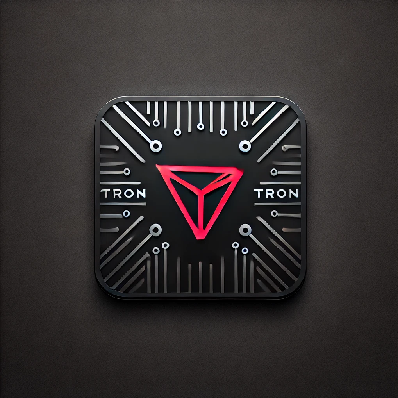
While $TRX may not have the market cap of giants like Bitcoin or Ethereum, it offers a unique value proposition through its speed, low fees, and growing ecosystem. As TRON continues to develop and attract new users and developers, its market cap could see further growth, particularly as more people recognize the benefits of the TRON network for decentralized applications and finance.
Crypto trading on the TRON Network provides a distinct and rewarding experience, particularly for those drawn to the dynamic world of Decentralized Finance (DeFi). The TRON Network is known for its scalability, low transaction fees, and fast processing times, all of which make it an ideal environment for DeFi trading. By familiarizing yourself with the fundamentals of the TRON Network and leveraging its advantages, you can effectively navigate the DeFi landscape. The availability of various tools, such as decentralized exchanges (DEXs) and trading bots, further enhances your ability to make informed trading decisions and optimize your strategies. These tools allow you to automate trades, capitalize on market opportunities, and engage with the vibrant ecosystem of TRON-based tokens and dApps.
However, whether you’re trading on a decentralized or centralized platform, understanding and prioritizing the importance of self-custody is essential. In the decentralized world of crypto, retaining control over your assets means safeguarding your private keys and ensuring that you are the sole custodian of your funds. This approach not only protects your investments from potential hacks and exchange failures but also empowers you to fully participate in the DeFi ecosystem without relying on intermediaries. As you explore the opportunities available on the TRON Network, remember that your knowledge of the platform, combined with a strong focus on security, will be your greatest assets in achieving success. The ever-evolving landscape of crypto trading on TRON requires both strategic insight and a commitment to protecting your digital wealth.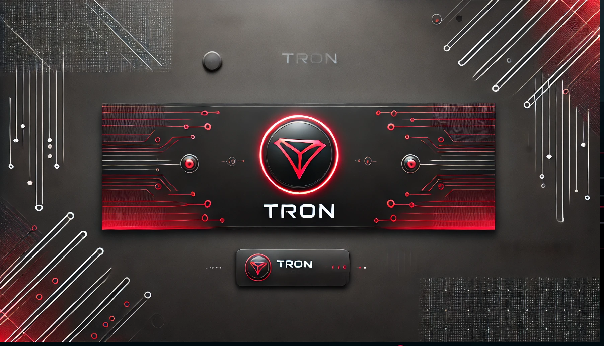
Here are some useful links related to DeFi on the TRON Network:
TRON Network Official Website: TRON Network
- The official website for TRON, providing comprehensive information about the network, its technology, and latest updates.
TRONSCAN (TRON Block Explorer): TRONSCAN
- The official TRON blockchain explorer, where you can view transactions, accounts, and smart contracts on the TRON network.
JustLend: JustLend
- TRON’s official lending and borrowing platform, where users can lend their assets to earn interest or borrow against their holdings.
JustSwap: JustSwap
- A decentralized exchange on TRON that allows users to trade TRC-20 tokens in a trustless manner.
SunSwap: SunSwap
- Another popular decentralized exchange on the TRON network, offering various TRC-20 trading pairs.
JustStable (USDJ): JustStable
- A decentralized stablecoin system on TRON that provides stability and collateral-backed tokens like USDJ.
SUN.io: SUN.io
- A TRON-based DeFi platform that supports liquidity mining, staking, and yield farming for TRON assets.
TronLink Wallet: TronLink
- A popular TRON wallet that integrates with DeFi platforms, allowing users to manage their TRON-based assets securely.
TRON Foundation on Twitter: TRON Foundation Twitter
- Stay updated with the latest announcements and developments from the TRON Foundation.
DeFi Llama (TRON): DeFi Llama TRON
- A dashboard that tracks DeFi protocols on the TRON network, including total value locked (TVL) and other key metrics.
These links should help you explore and engage with the DeFi ecosystem on the TRON Network effectively.

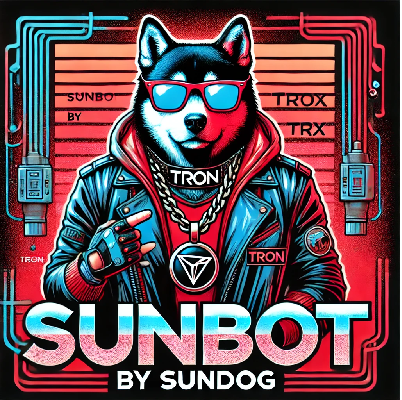
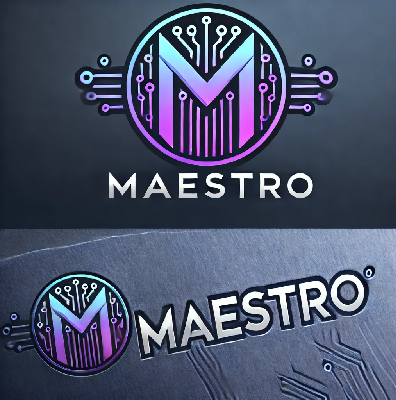
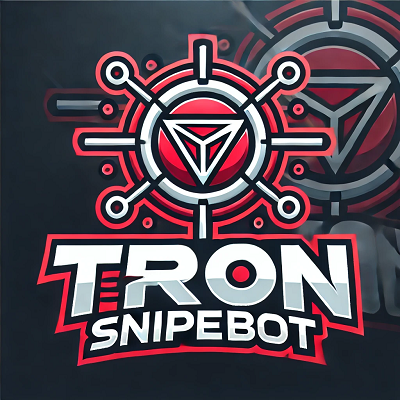
























![[LIVE] Engage2Earn: Save our PBS from Trump](https://cdn.bulbapp.io/frontend/images/c23a1a05-c831-4c66-a1d1-96b700ef0450/1)





![[ℕ𝕖𝕧𝕖𝕣] 𝕊𝕖𝕝𝕝 𝕐𝕠𝕦𝕣 𝔹𝕚𝕥𝕔𝕠𝕚𝕟 - And Now What.... Pray To The God Of Hopium?](https://cdn.bulbapp.io/frontend/images/79e7827b-c644-4853-b048-a9601a8a8da7/1)










